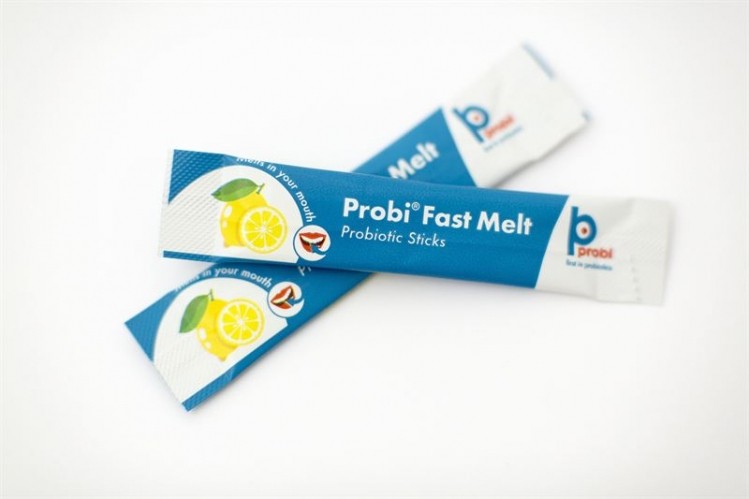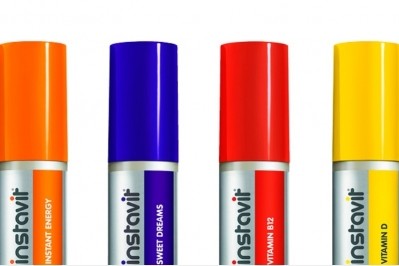Probi tackles pill aversion with new flavored probiotic melts

The melts come in stick packs, designed with children in mind but also suitable for adults. Each stick was developed to hold a daily dose containing Probi’s patented probiotic strain LP299V, though the company is planning to launch the melt format with other Probi strains.
“We believe that, with Probi Fast Melt, there is a fantastic opportunity for our customers to attract new consumer groups, particularly children, into the probiotic supplement category,” said Niklas Bjärum, President Probi USA, Global Sales & Marketing.
Pills, capsules sales dip, ‘other’ sales go up
Sales of prebiotics and probiotics in the form of pills have declined in the 52 weeks ending August 13, 2017, according to SPINS sales data. Caplet sales fell by 52.3%, tablets by 17.8%, softgel by 4.3%, and capsules by 1.7%.
Despite the declines, these formats make up a bulk of prebiotic and probiotic products and sales. At $442 million, capsules made up the most share of the $933 million prebiotic and probiotic total sales.
Meanwhile, formats that don’t require consumers to swallow pea-sized lumps have thrived. Probiotic and prebiotic chewable tablets sales were up 23.9% to total $33.4 million, soft chews up 67.1% to $1 million, and drops, a relatively small category, were up a whopping 1,721% hitting $365,358.
Grouped together in the ‘other’ category, formats that don’t belong to the familiar delivery forms,were up 1,310% totaling $503,931, a sign that there is increasing demand for non-pill formats.
Innovation not just about scientific research, says IPA executive director
The industry needs to continue to design new delivery formats not only to excite consumers, but to make sure probiotics can stay alive after being consumed, George Paraskevakos, executive director at the International Probiotics Association (IPA), told NutraIngredients-USA.
“Innovation is very important, outside of research and the scientific side of things, and how probiotics work in a health benefit perspective,” he added. “What we as IPA really stand behind is dosage and stability testing, whatever that innovation might be.”
And because the science of probiotics is more rigid because of the need to fall within regulatory guidelines, it is in the delivery formats where manufacturers can be more creative and differentiate themselves, as long as the innovation still allows the product to meet its health claim.
To help finished product brands navigate the fine balance between science, delivery format innovation, and regulatory requirements, next on IPA’s agenda is to publish guidelines on manufacturing standards. “We want to publish a guideline on what companies or brands should look for when choosing a contract manufacturer,” Paraskevakos said. “And also to look at different analytical standards.”
The IPA will be at this week’s SupplySide West show in Las Vegas at booth AA-122, called the Probiotic Resource Center, where visitors can learn about key issues in the probiotics market.
















